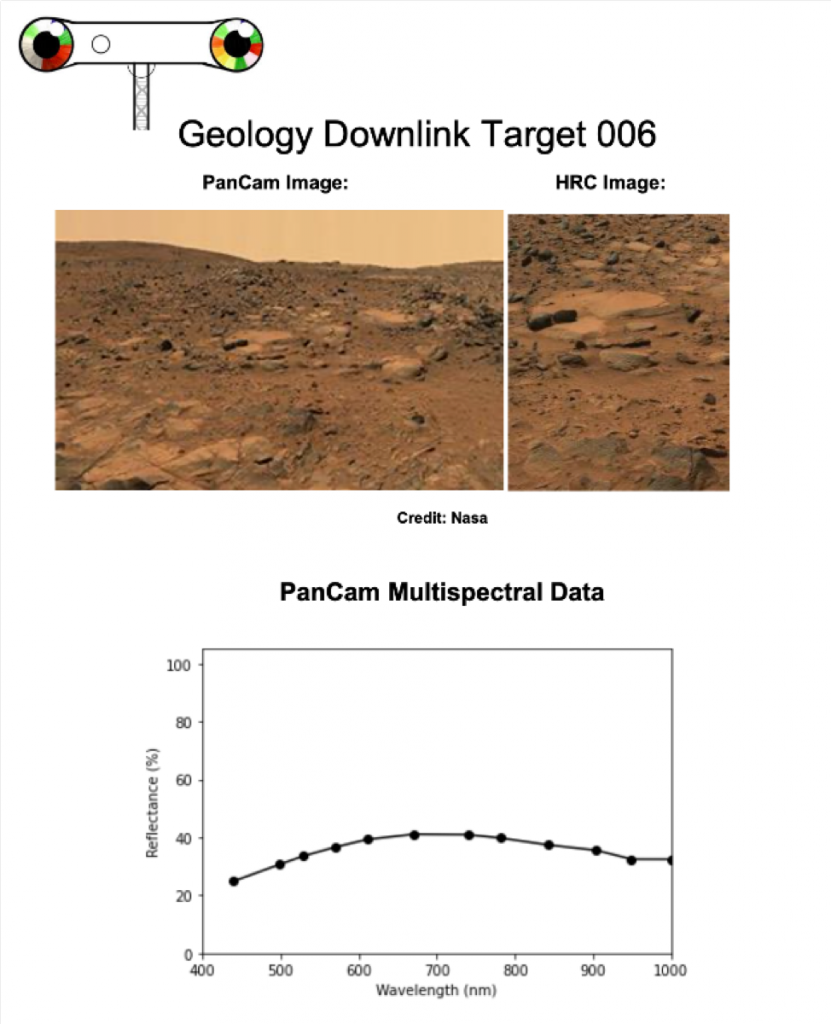Inspiring Stories – Roving with Rosalind
In this EPEC Inspiring Outreach Story, Sara Motaghian, a doctoral student at the Natural History Museum (London), tells us about her experience organising ‘Roving with Rosalind’ for classrooms across the UK.
Roving with Rosalind is a series of curriculum-based activities which give students the opportunity to overcome challenges and solve problems based on the ExoMars mission. We have created 5 large practical kits to be housed at STEM hubs across the UK filled with engaging workshops and activities linked to space science.
We applied to the UK Space Agencies Aurora Outreach funding in the summer of 2019 to make the Roving with Rosalind project a reality and were ecstatic to be awarded the funding at the end of that year. The project aims to reach to 7000 students across the UK in total during its primary funding period. At the end of the project’s nominal funding timeline, the kits and resources will be hosted indefinitely by STEM Learning ensuring the kits can be collected and used well beyond the first 7000 students.
In total, 20 educational, curricula-mapped resources have been created to accompany the practical kits. The project funds the postage of the kits to schools in order to remove funding and geographical barriers to participation in STEM initiatives, improving opportunity and equity in STEM learning. This model helps us to reach schools and students that are geographically distant from science centres, universities and museums, and schools that don’t have the funding to engage with other initiatives.

The main activity categories are:
- Landing site selection, geology and remote sensing
- Rover and mission design
- Instrument design and building
- Analogue missions (the most fun!)
- Sample analysis
- Learn to code in Python
The main activity is the analogue missions where students explore a map of the ExoMars landing site, in one of three ways, to search for points of interest and data to analyse. First, students can walk around the map as the rover, communicating with their team as mission control. Secondly, they can utilise remote-control rovers with video feedback to simulate the difficulty in controlling a rover from afar. Or thirdly, they can build and program the included rovers to execute a path across the map. For every point of interest students locate they receive a data downlink from Mars to analyse!

We were really lucky to be able to launch Roving with Rosalind during National Astronomy Week and deliver a rover design and building workshop to over 200 school classes and ~5000 students! We have been able to send our kits to three classes so far, restricted due to COVID, and 100 students to date. We have been able to partner with several STEM equity programmes, like In2Science and Girls into Geoscience, to deliver out Python programming workshops to over 300 upper secondary students with amazing success, and the program has already received some great feedback:
“[It] has been one great interesting and informative experience. I enjoyed everything … provided for the participants. One particular event: I had never done coding before. It was a bit challenging since I had no idea where to begin but the mentors made it so easy to grasp. I’m very excited, it’s something I’ve always wanted to do, and I will definitely do it as an extracurricular activity in my free time. There were a lot of courses. I was clear about what I wanted to do, but the courses gave me a lot more information about the university and beyond. I want to study physics so I’m looking forward to University and onwards.”
As well as reaching students, the Roving with Rosalind programme also aims to improve teacher confidence in the delivery of STEM resources and has provided training to over 50 teachers, technicians, STEM ambassadors and lecturers. The Roving with Rosalind framework is also now being used as a basis for a Europe-wide outreach project run by the ESA Robotics Working Group.
Do you like this story and want more? Browse our archive of EPEC Inspiring Stories and get inspired!



